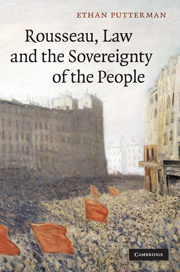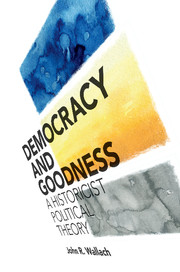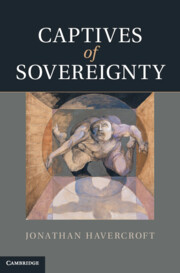Rousseau, Law and the Sovereignty of the People
Together with Plato's Republic, Jean-Jacques Rousseau's Social Contract is regarded as one of the most original examples of utopian political engineering in the history of ideas. Similar to the Republic, Rousseau's masterwork is better known today for its author's idiosyncratic view of political justice than its lessons on lawmaking or governance in any concrete sense. Challenging this common view, Rousseau, Law and the Sovereignty of the People examines the Genevan's contributions as a legislator and builder of institutions, relating his major ideas to issues and debates in twenty-first century political science. Ethan Putterman explores how Rousseau's just state would actually operate, investigating how laws would be drafted, ratified and executed, arguing that the theory of the Social Contract is more pragmatic and populist than many scholars assume today.
- Argues that Rousseau was a realist, challenging previous views of him as a Utopian idealist
- Explains how laws are made in Rousseau's state, providing a unique understanding of the practical implications of his idea
- Develops the view of Rousseau as a democrat, offering a fresh perspective from more traditional views
Reviews & endorsements
'Putterman's signal and invaluable contribution is to demonstrate the ways in which Rousseau's attention to institutional design consistently aimed at enhancing rather than disabling the people's authority over, and their freedom through, laws. Rather than revealing a hidden preference for elite control over citizens, Rousseau's institutional sophistication instead affirms his profound commitment to popular sovereignty.' History of Political Thought
Product details
June 2010Hardback
9780521765381
200 pages
235 × 160 × 18 mm
0.46kg
Available
Table of Contents
- Introduction: the celestial voice
- 1. Rousseau's concept of law
- 2. Agenda-setting and majority rule
- 3. Democracy and vote rigging
- 4. Popular sovereignty and the republican fear of large assemblies
- 5. Enforcing the laws in Poland and Corsica
- 6. Judging the laws/when legislation fails
- Conclusion: law and liberty
- Selected bibliography
- Index.







